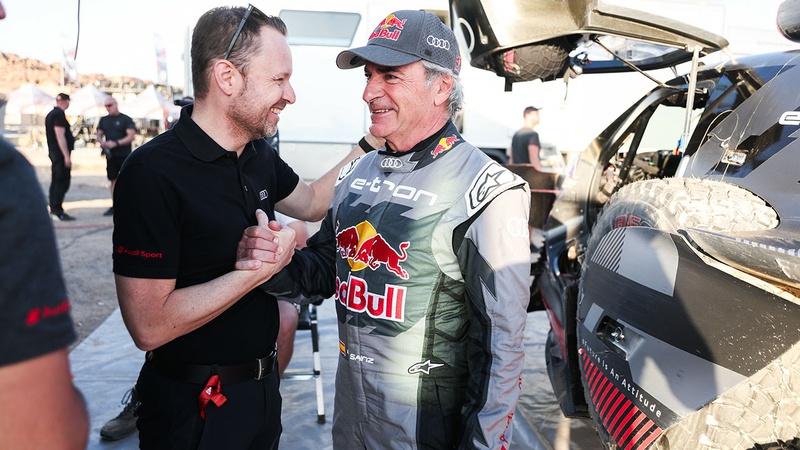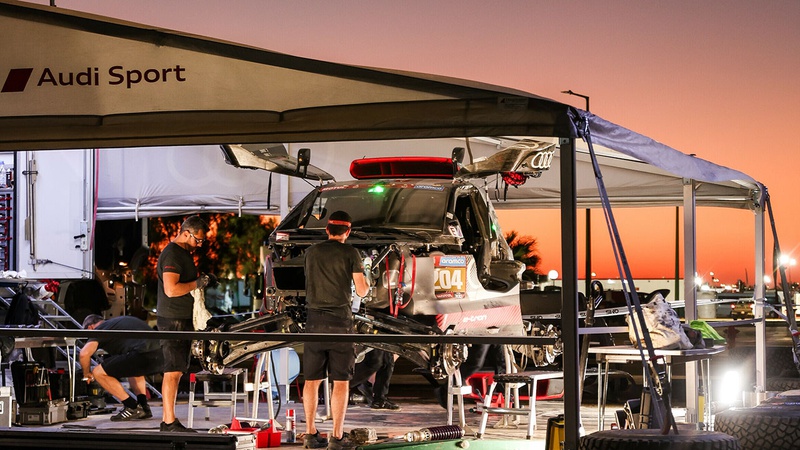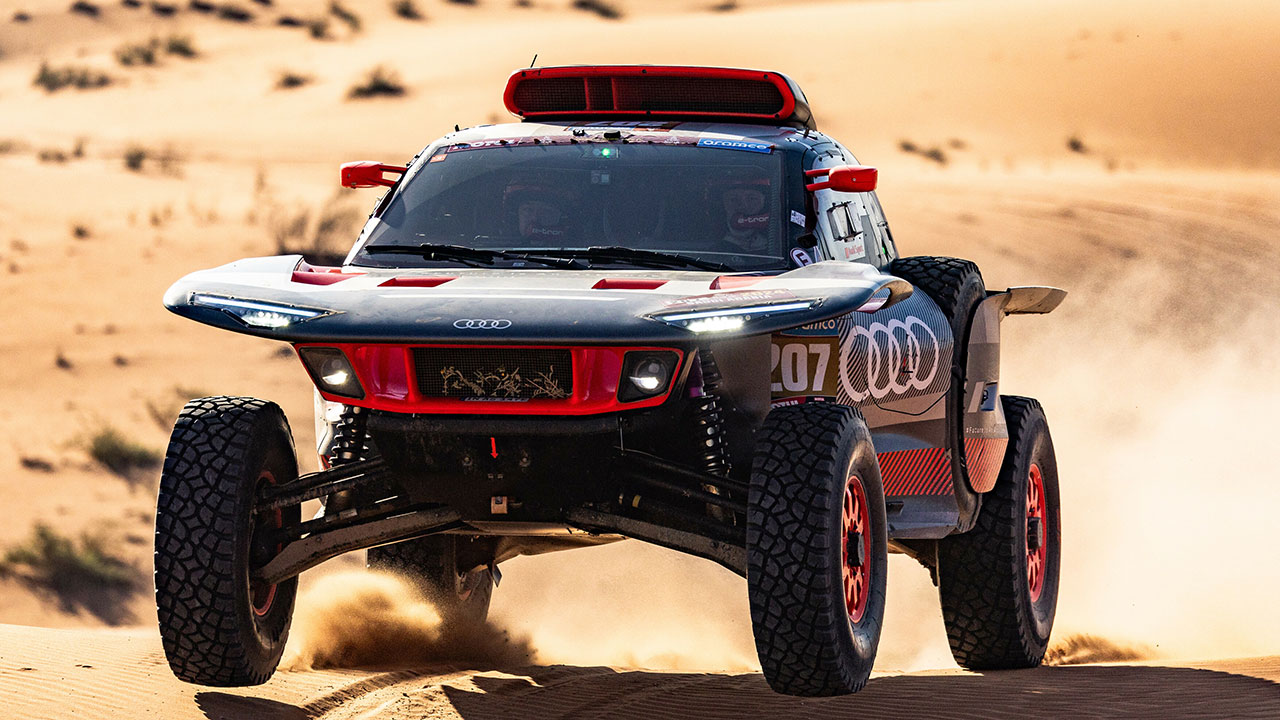Where did the electric car charge in the desert? The answer is: it charged itself. The fact is that the Audi RS Q e-tron is not a pure electric car in the classic sense. Its working principle is similar to the Chevrolet Volt, which has a petrol engine as a generator and an electric motor, by means of which the car is propelled.
Audi RS Q e-tron for the Dakar Rally is powered by a 2.0-litre four-cylinder TFSI engine from the Audi DTM race car. The combustion engine acts as a generator for the battery pack, which supplies electricity to three motor-generators from the Audi e-tron FE07 Formula-E. Two of the electric motors work as part of the all-wheel drive system, while another motor works directly to charge the battery pack. The battery is also charged by regeneration during braking. The total output of the system reaches 670 horsepower. The battery weighs about 370 kilograms and has a capacity of about 52 kWh.



This was Audi's third attempt to win the Dakar with an unusual electric car. But it could not be done in 2022 and in 2023 due to a number of technical problems.
"With our revolutionary electrified drive, we have overcome one of the biggest challenges in motorsport after just three years," commented Oliver Hoffmann, Audi's member of the board responsible for technical development. "We are thus continuing a long series of pioneering achievements that have always characterized Audi in four decades of motorsport."
2024 will be the final year for Audi's Dakar programme, after which the focus will shift to Formula One in 2026.

